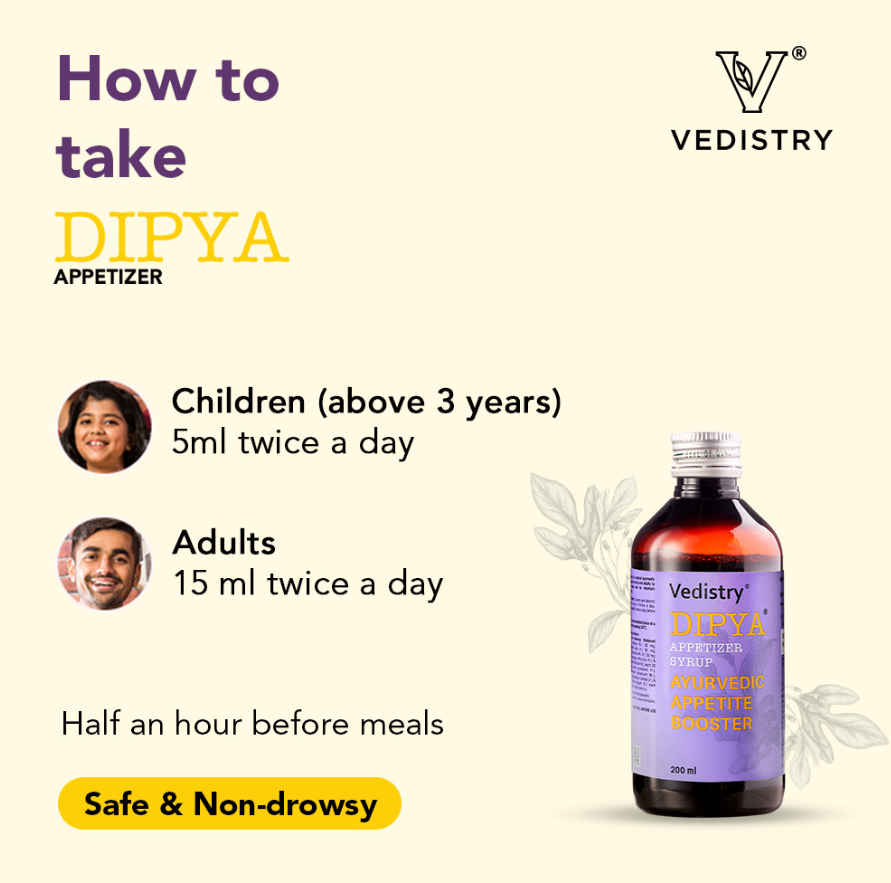Understanding the Importance of Appetite
Appetite is the natural urge, wish or desire to satisfy some craving, which is usually for food items or drinks. This physiological process regulated by hormones in your body is essential for maintaining optimum nutrition in your body. Your appetite is controlled by two hormones: ghrelin, which makes you think you’re hungry, and leptin, which tells your brain that your stomach is full. These hormones can be thrown out of whack for a variety of reasons, but luckily, there are a few things you can do to balance these chemicals out.
Common Causes of Low Appetite in Children
Loss of appetite is commonly found not only in kids but to some extent also in adults. There are numerous reasons for this complaint of low appetite. Usually, kids are picky eaters and they prefer to eat some selective food items. But, children with less or poor appetite do not feel hungry at all and they abstain from consuming regular meals. These irregular food habits in children hamper their overall physical and mental development. This behavior of selective eating not only affects a child’s health but is very upsetting for the parents too.
Factors Contributing to Reduced Appetite in Adults
Also in adults, there are varied causes for low appetite which need to be identified and treated appropriately. Chronic loss of appetite is mostly a manifestation of several major illnesses in adults. According to the fundamentals of Ayurveda, Mandagni i.e., low digestive power leads to low appetite and is ultimately responsible for the occurrence of all diseases. Feeling less hungry during hot weather, or because you overindulged the day before, is perfectly normal. But losing your appetite long-term could affect your well-being, and even cause weight loss and malnutrition.
How to Maintain a Healthy Appetite
Maintaining a healthy appetite should be easy, but often is not, with lots of people suffering from both over and under-eating. There are lots of reasons your appetite may lower, including stress, illness, lifestyle, as well as serious medical conditions like anorexia.
Dietary Tips to Improve Appetite
In adults, low appetite can be due to many factors, including:
• Stress
• Anxiety
• Depression
• Age
• Less frequent exercise
• Lifestyle changes
• Weight loss
• Antibiotics
• Chemotherapy
And some conditions like:
• Anorexia
• IBS
• Heart failure
• Kidney failure
• HIV
• Dementia
The Role of Exercise in Enhancing Appetite
Many factors can affect your appetite, including physical conditions, mental conditions, medications, and vitamin or mineral deficiencies. However, small changes can make a big difference, including making changes to your diet and adjusting your mealtimes.
Stress Management for a Healthy Appetite
If you have a hard time eating, it is always a good idea to start an ayurvedic digestive syrup which can boost your hunger and help you gain weight.
Once the cause for low appetite is known, it should be treated accordingly. Apart from that, here are 7 ways that can prove extremely beneficial in improving your child’s as well as adult’s appetite naturally.
1. Eat 4-6 Smaller Meals
Eating three full meals might seem like a challenging task when you do not have a healthy appetite. If you eat 3 full meals a day, you are likely to feel stuffed in between meals. A more appropriate way to eat is to divide your three main meals into five or six smaller meals. This helps to keep your metabolism stable, which can make it easier to maintain a steady appetite.
Ghrelin, the hormone that regulates hunger, runs on a 4-hour cycle. If you eat a little bit every four hours, your appetite should remain stable. As your appetite improves, you can start increasing portions and adding more ingredients.
2. Schedule Your Meal Timings
Hunger usually cues people to eat. However, if you are struggling to get hungry, you might not be able to rely on your appetite to remind you when to eat.
In this case, schedule your meals and set a reminder of each mealtime to make sure you are eating regularly. Additionally, having a regular meal schedule is important for helping you consume enough calories and nutrients every day.
3. Cut the Sugary Drinks from Your Diet.
Sucrose, the type of sugar found in carbonated soft drinks, tricks you into feeling full. Besides the fact that these high sugar-containing drinks are harmful to health, they mess with the hormones that regulate your appetite. So, to maintain a healthy appetite, avoid soda, artificially sweetened juices, and energy drinks.
4. Eat Less Fiber
High-fiber diets have been proven to promote feelings of fullness and decrease calorie intake for those looking to lose weight.
Even though high-fiber foods are recommended in a balanced diet, they can slow down digestion and keep you feeling full for longer. Thus, eating a low-fiber diet could prevent you from feeling too full, and might help you eat more during the day.
However, at the same time, this low-fiber diet should only be used as a temporary strategy for increasing appetite, as following it in the long term may have negative effects on health and lead to constipation or gastric trouble.
5. Do Enough Physical Activity
Exercise is known to boost hunger – the more energy you burn, the more your body will crave. Regular exercise has been shown to increase metabolism and muscle mass and influences the hormones that increase appetite.
Ayurveda has also documented that exercise helps to kindle the digestive fire which eventually improves your appetite. Try going for a short walk or exercise lightly before meals to see if it helps get you hungry.
6. De-stress Yourself
Stress typically affects the appetite in 2 ways; some people find comfort in food when they are stressed whereas others will totally cut off food. Those who stop eating are so preoccupied with their stress that they do not listen or ‘tune into’ their body’s hunger cues, whereas those who overeat use food as a distraction.
In either case, it is better to confront your stressors for your better appetite and overall well-being.
Try these tips to help reduce your stress levels -
• Take regular, gentle activity
• Practice some breathing exercises
• Prioritise your sleep
• Yoga or mindfulness meditation
7. Use Natural Appetite Booster Herbs, Fruits and Spices
Carminative herbs like fennel, peppermint, black pepper, coriander, mint, ginger, cinnamon, etc are natural appetite boosters for adults. Apart from adding a divine taste to your food, they reduce the gas production and bloating that can put you off eating.
Fruits like Papaya and Pineapple contain enzymes like Papain and Bromelain respectively which are potent digestants and natural appetite boosters.
Natural Appetite-Boosting Solutions
These appetizing herbs and spices can be formulated meticulously based on the fundamental principles of Ayurveda to counter all the issues related to the appetite of adults as well as children. One such deeply researched super formulation of authentic potent herbs, which are highly effective on your GI system is, – Dipya Appetizer Syrup by Vedistry.
Vedistry’s Dipya appetizer syrup is an Ayurvedic syrup for digestion with a unique combination of proven Ayurvedic herbs like Bhringraj, Shunthi, Ajmoda, Vidang, Pippali, etc. which endows the following Benefits-
• It improves taste & hunger.
• It is an excellent appetite weight gain syrup
• Potent ayurvedic digestive syrup

Dipya Appetizer syrup is the best syrup for appetite and weight gain and is excellent in taste and suitable for all ages. It works wonders, especially in children who are underweight and selective eaters. This ayurvedic syrup for digestion also works as weight gain appetite syrup in children.
Introducing Dipya Appetizer Syrup for Appetite Enhancement
Herbs like Pippalimul, Ajmoda and Ginger in this digestive ayurvedic syrup are known to stimulate the activity of appetite-enhancing enzymes thereby improving the process of metabolism in all age groups.
Vidanga and Pippali have deworming properties which are essential in children. Kids are more prone to develop worm infestation. This often precipitates low appetite, malnourishment, and poor physical and mental development. In such cases, these herbs prove extremely beneficial.

Bhringaraj also enhances the digestive enzyme secretion which further fortifies the overall potency of Dipya digestive ayurvedic syrup.
Shatavari improves digestive health and promotes weight gain, thus making this combination a weight gain appetite syrup for children.
This ayurvedic syrup for digestion, unlike modern medicine, does not cause any appetizer syrup side effects which makes it completely safe for long-term consumption.
To cut a long story short, an individual struggling with low body weight, poor digestion, lack of taste and loss of appetite due to indigestion, any illness or old age can surely benefit from Dipya Appetizer Syrup.
